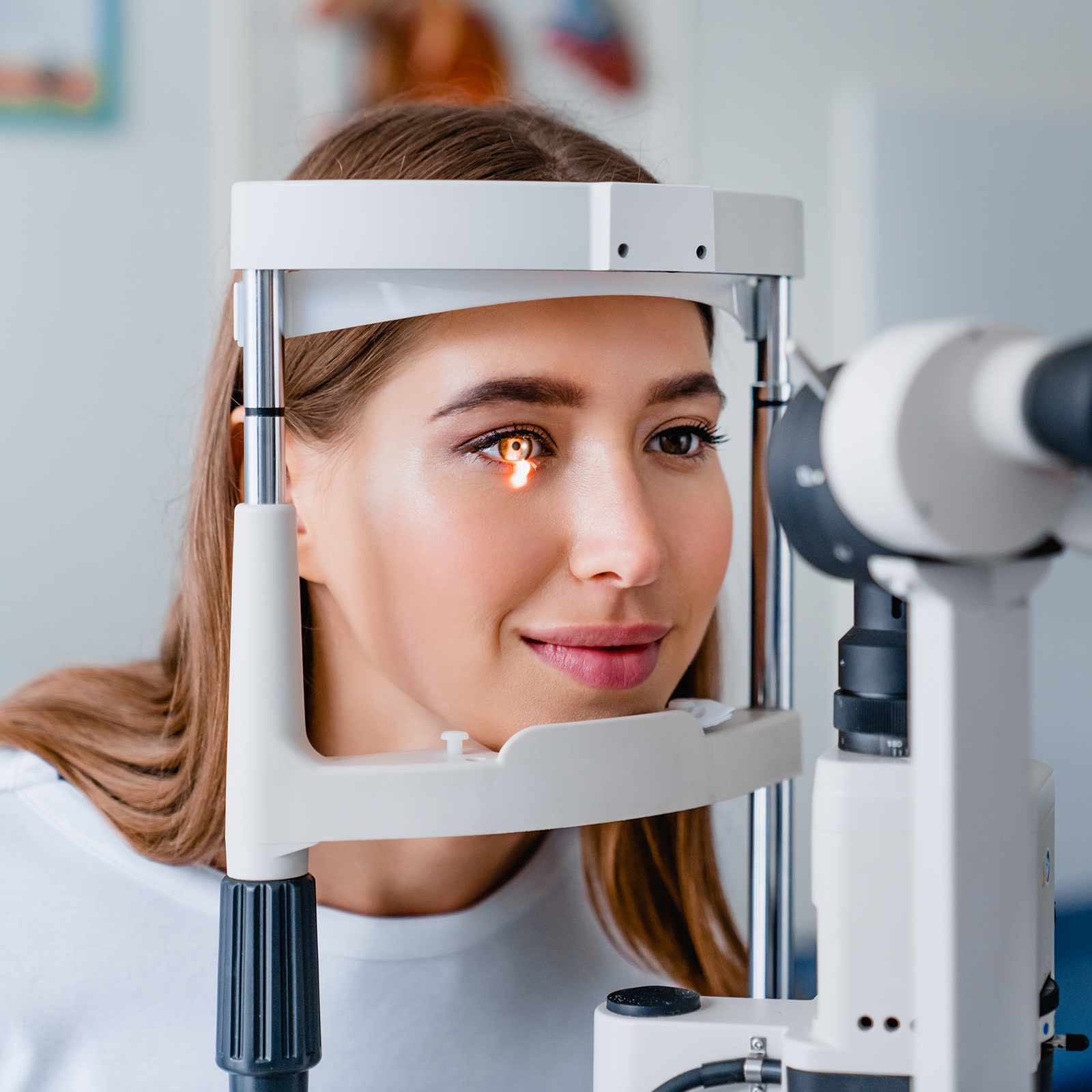
At Florida Eye Microsurgical Institute, our comprehensive general eye care services go far beyond simply determining if you need glasses or contact lenses. Our eye doctors provide thorough evaluations of your entire eye health, from the front surface of your cornea to the back of your retina, ensuring that any potential problems are caught early when they’re most treatable.
When you arrive for your comprehensive eye exam, our team will begin by gathering important information about your health history. This includes questions about your personal medical background, your family’s eye health history, and any vision concerns you may be experiencing.
This information helps us focus on specific areas that may need extra attention based on inherited conditions or other medical factors that could affect your eyesight. If you wear contact lenses, please bring them to your appointment. We’ll check to ensure they’re the correct prescription, proper fit, and appropriate type for your specific eye needs.
This evaluation helps prevent potential complications and ensures your lenses are supporting your best possible vision.
Your complete eye exam will include several painless tests designed to evaluate different aspects of your vision and eye health:
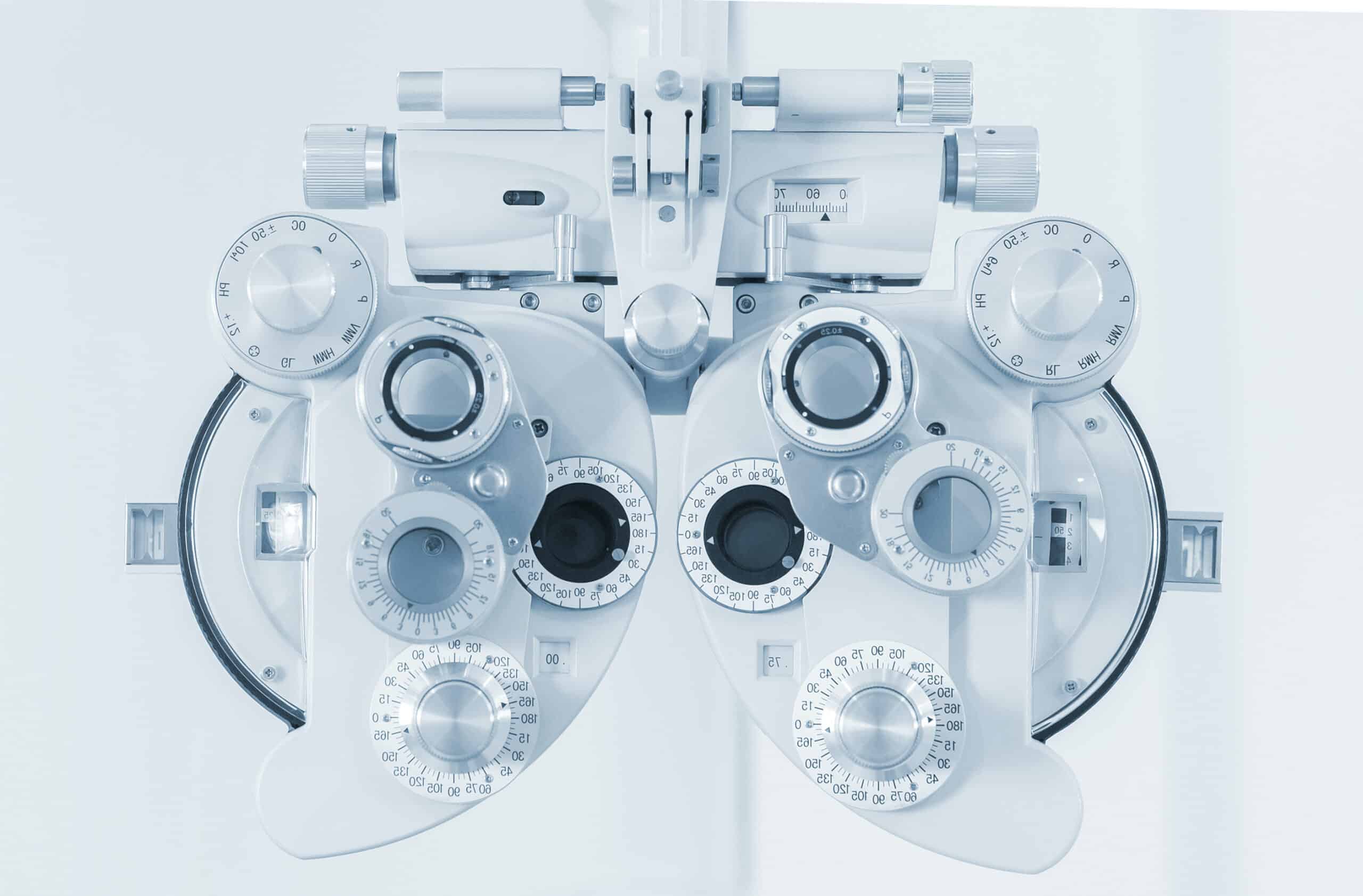
This test measures how clearly you can see at various distances. You’ll cover one eye at a time and read letters on an eye chart that become progressively smaller. This helps your eye doctor determine if you need corrective lenses and how strong they should be.
Your eye muscles control how your eyes move and work together. Your eye doctor will have you follow an object as it moves in different directions, checking for any weakness or coordination problems that could affect your vision or cause eye strain.
If you need vision correction, your eye doctor will perform a refraction test to determine your exact prescription. They may use retinoscopy, where they shine a light into your eyes to observe how it reflects off your retina.
You’ll also look through a device called a phoroptor, which contains multiple lenses. Your eye doctor will ask you to compare different lens combinations to find the ones that give you the clearest, most comfortable vision.
Your peripheral vision, which is what you can see to the sides while looking straight ahead, is crucial for activities like driving and sports. Your eye doctor will test this using various methods, from having you identify when you can see our hand moving from the side of your visual field, to using computerized equipment where you press a button each time you see a flash of light.
This helps them detect any blind spots that might indicate certain eye conditions.
Using a slit-lamp microscope, your eye doctor will examine the front portions of your eye, including the cornea (clear front surface), iris (colored part), and lens. You’ll sit comfortably while we use this specialized microscope that magnifies your eye and provides a detailed view.
Sometimes, your eye doctor will use orange eye drops called fluorescein to make certain structures easier to see. This dye naturally washes away on its own.
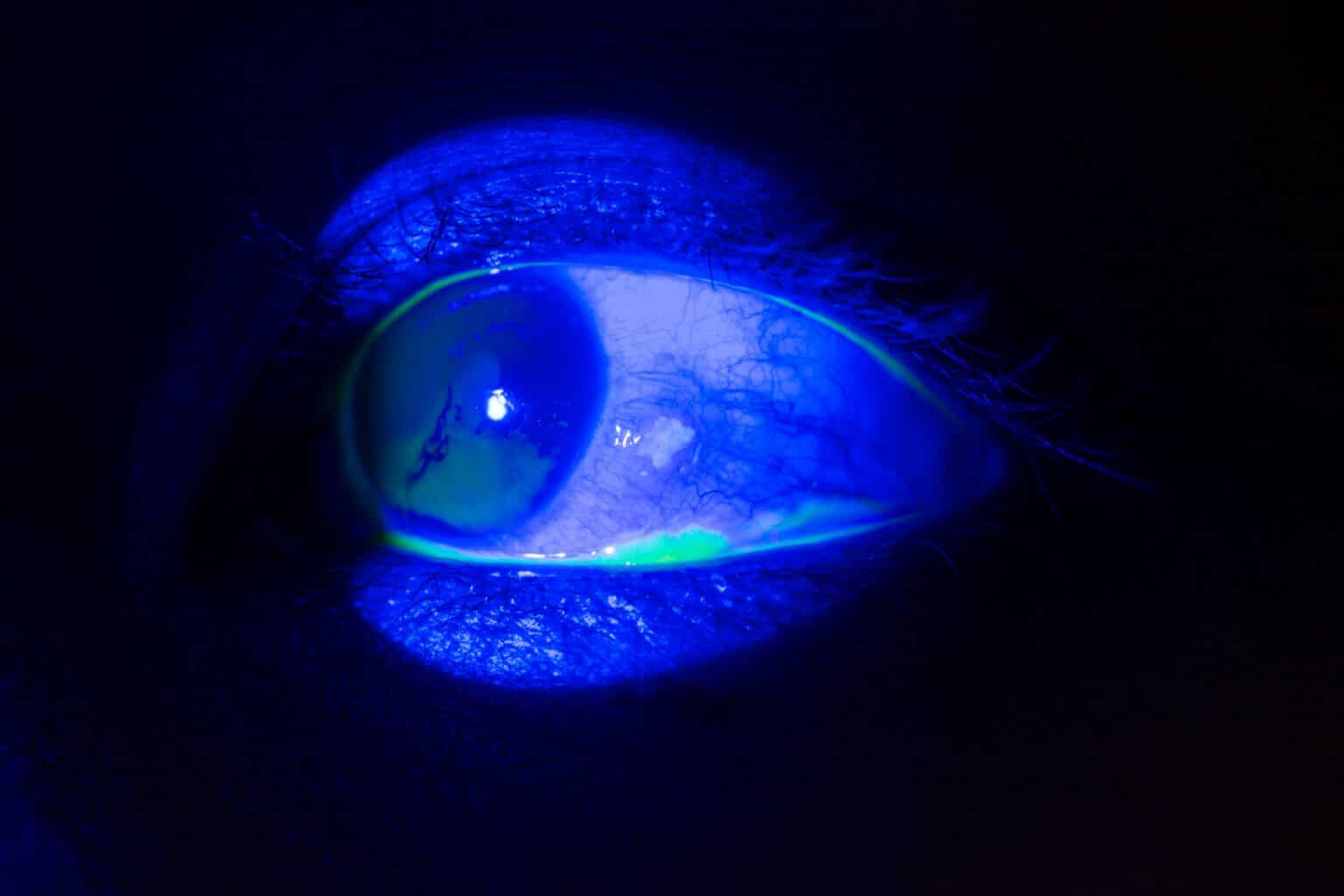
The retina captures images and sends them to your brain through the optic nerve. To examine these critical structures at the back of your eye, your eye doctor typically needs to dilate your pupils with eye drops.
While these drops may sting briefly, they allow your eye doctor to get a comprehensive view of your retina and optic nerve. They may use different examination techniques depending on what they need to see.
For the most detailed view, your eye doctor will combine the slit-lamp microscope with special lenses. The dilation effects typically last several hours, during which your vision may be blurry and you’ll be more sensitive to bright light.
Make sure to bring sunglasses and arrange for someone else to drive you home if possible.
Glaucoma is often called the “silent thief of sight” because it can cause permanent vision loss without early symptoms. Your eye doctor will measure the pressure inside your eye using a tonometer to screen for this condition.
One method uses a gentle puff of air blown into your eye while you rest your chin and forehead on the machine’s supports. Another technique involves numbing your eye with anesthetic drops and gently touching your cornea with a small probe to measure the pressure. Both methods are quick and comfortable.
Your eye doctor may also measure your corneal thickness using ultrasonic waves after applying numbing drops. This measurement helps them interpret your pressure readings more accurately and is also important if you’re considering LASIK surgery.
Beyond comprehensive eye exams, our eye doctors frequently treat various eyelid conditions including styes, chalazions, cysts, and both benign and malignant eyelid tumors. While experts don’t fully understand why some people develop these conditions and others don’t, our eye doctors have extensive experience diagnosing and treating everything from simple skin growths to complex cases.
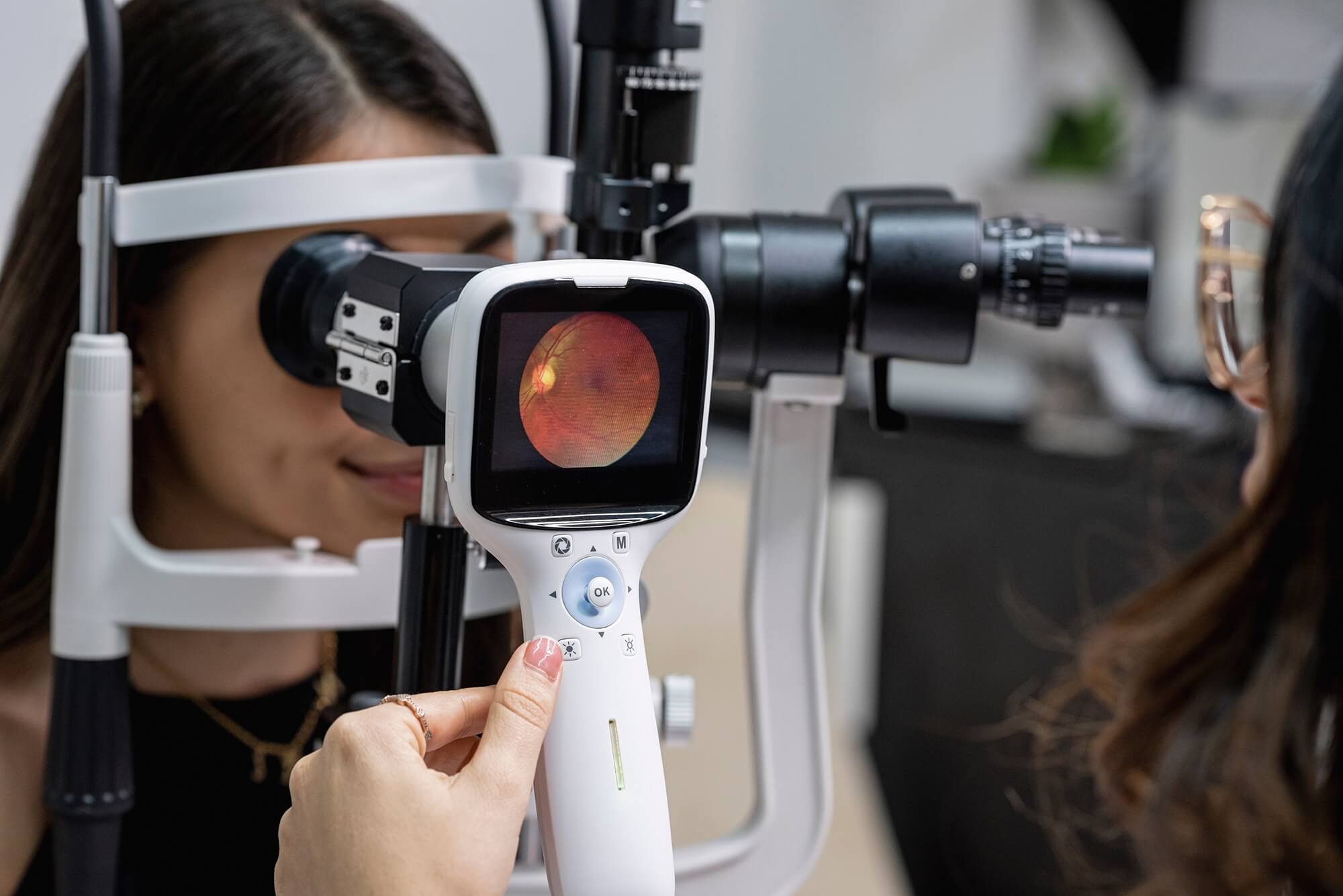
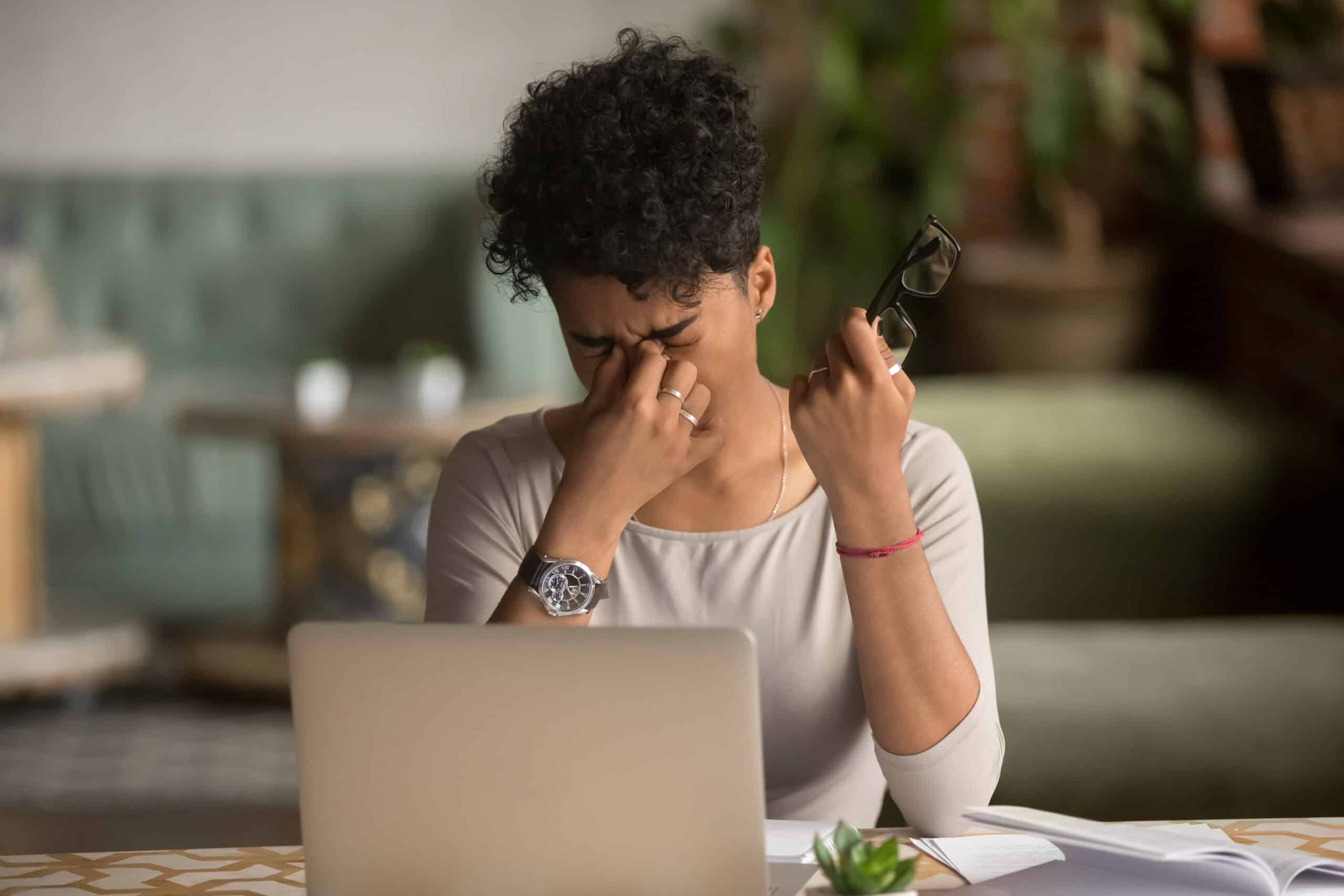
Eye emergencies can happen at any time, and prompt treatment is often crucial for preserving vision. During regular hours, our specialists provide emergency eye care for injuries and urgent conditions.
Our state-of-the-art facility in Boynton Beach is equipped to handle a wide variety of eye emergencies, including sudden vision loss, severe eye pain, chemical burns, foreign objects in the eye, flashing lights or new floaters, eye trauma from accidents or sports injuries, and sudden onset of double vision. Our experienced ophthalmologists understand that eye emergencies require immediate attention and will prioritize urgent cases to provide the rapid care you need.
We accept Medicare assignments and most commercial insurance plans. To verify if we accept your specific plan, please call our office. Our staff will be happy to help you understand your coverage and schedule your appointment.
Your vision is irreplaceable, and regular eye care is one of the best investments you can make in your long-term health and quality of life. Whether you need a routine examination, have concerns about changes in your vision, or require urgent care, our experienced team at Florida Eye Microsurgical Institute is here to provide the comprehensive, compassionate care you deserve.
Don't wait to protect your vision. Schedule an appointment at Florida Eye Microsurgical Institute in Boca Raton, FL, today!